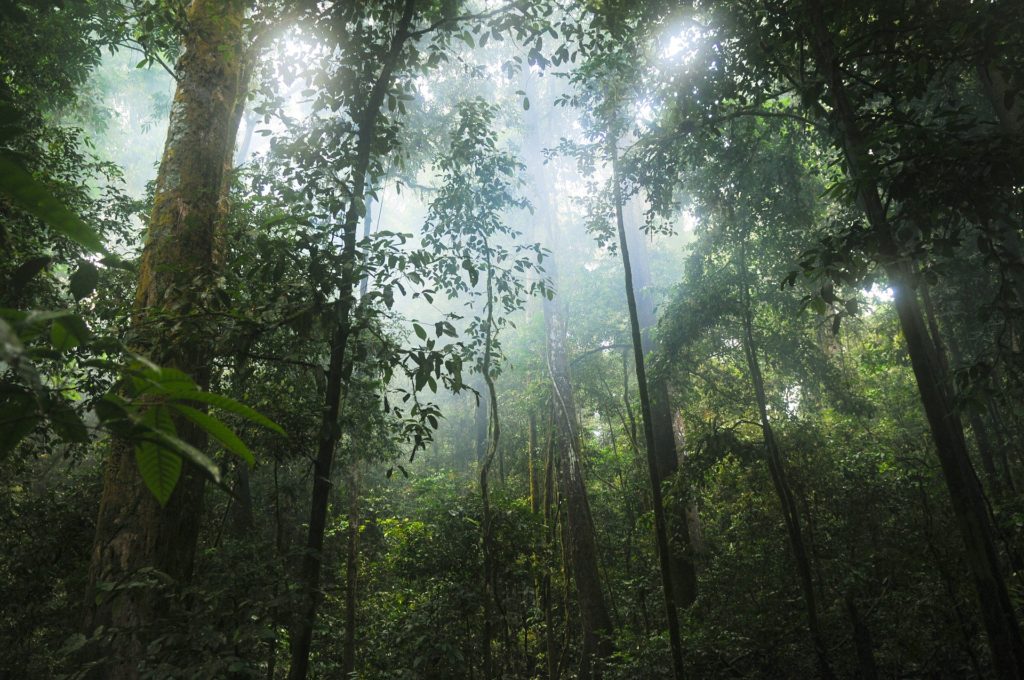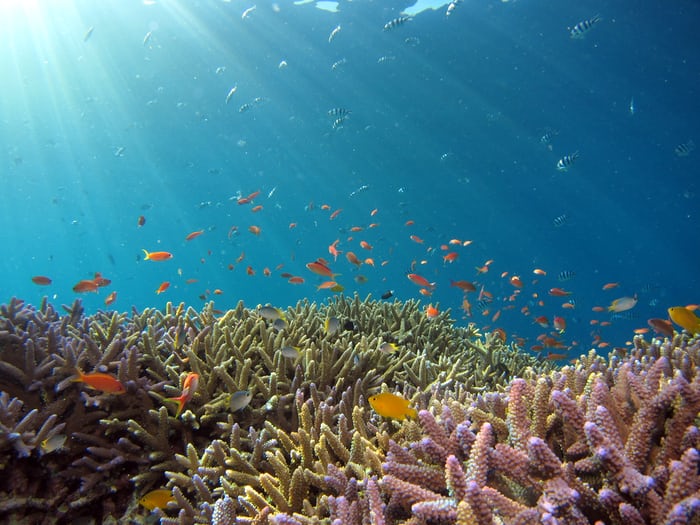Conservation and Biodiversity
This Week on Earth: World Environment Day
June 5, 2020
Good morning, and welcome back to This Week on Earth. Each week, we highlight the latest environmental news and what it means for our planet.
This week, however, we’re doing something a little different. Today is World Environment Day, and this year’s theme is biodiversity. So, today we’re looking at the different ways nature is sending us a message, and how, together, we can tackle these threats.
Check out our week in review, World Environment Day edition.
Football fields of trees lost — every minute
2019 was the third worst year in recorded history for tree loss in the tropics, behind only 2016 and 2017. Deforestation, fires and logging wiped out 29 million acres of tree cover — equivalent to a soccer field of trees every six seconds.
This news comes as a new study links deforestation, alongside rising temperatures, to changes in the makeup of our forests. Old growth trees are dying, and the trees growing in their place are younger and smaller. The consequences for wildlife and CO2 storage could be devastating.
Meanwhile, Brazil, which houses most of the largest tropical rainforest, the Amazon, is slashing its budget to fight climate change. Fight back, by planting a tree with The Canopy Project: $1 = 1 tree planted.

Mangroves are drowning
Speaking of trees, mangroves are threatened by increasing sea level rise, according to research published this week. Mangroves play an essential role in not only storing carbon dioxide but also protecting about 5.3 million people from threats like storm surges and coastal erosion.
The research found that mangroves cannot keep up with sea level rise of more than 6 millimeters a year. If we don’t cut our greenhouse gas emissions, we could hit mangroves’ threshold by 2050.
“If [mangroves] disappear, there’s going to be imbalances in the number of fish and other species that rely on them,” co-author Erica Ashe, a postdoctoral scientist at Rutgers University, told Earther.
Atlantic hurricane season is coming on strong
It’s that time of year: hurricane season. And already, the third tropical storm of the season, Cristobal, has formed — the earliest ever in the recorded history of the Atlantic season (last year, the Atlantic’s third-named storm didn’t form until August 20).
Though the formation of hurricanes are pretty complicated, analysis published this week showed that hurricanes are getting stronger, and climate change is likely to blame.
Deep oceans could warm seven times faster
Oceans are already taking the heat from unchecked climate change. In the last 26 years, the rate of ocean warming has more than doubled — with heatwaves growing more frequent and intense.
Now, researchers suggest this rate could be seven times faster by 2050, even with drastic cuts to fossil fuel emissions. This is especially concerning for deepwater species, according to Isaac Brito-Morales, the study’s lead author.
“Because the deep ocean has a more stable temperature, any small increase will have an impact on species — they’re more at risk than those at the surface,” Brito-Morales told The Guardian.
The sixth mass extinction accelerates
In 2014, Elizabeth Kolbert warned us of a sixth mass extinction that’s happening under our noses. New findings released this week confirm it’s happening, it’s accelerating and it’s all our fault.
Between 2001 and 2014, 173 species went extinct — 25 times the normal rate — and researchers warn that puts humans at risk, too.
“When humanity exterminates populations and species of other creatures, it is sawing off the limb on which it is sitting, destroying working parts of our own life-support system,” said Paul Ehrlich, professor at Stanford and co-author of the study, in an interview with CNN.
Russian oil spill spells disaster in the Arctic
Climate change, as we’ve seen above, is hurting the Earth. But human activities, like logging, chemical manufacturing and drilling, are making matters worse.
Last Friday, a fuel tank at a Russian power plant within the Arctic Circle collapsed. After 20,000 tons of diesel oil leaked into a river nearby, Russia’s president Vladimir Putin this week declared a state of emergency.
“Ground subsidence beneath the fuel storage tanks is believed to have caused the spill,” wrote the BBC. “Arctic permafrost has been melting in exceptionally warm weather for this time of year.”
In other words, human activities plus climate change yet again makes a deadly combination.

Now, for some good news
The Earth is taking the brunt of human-caused destruction right now, but we’re not powerless. This week, we spoke to conservationist and biodiversity scholar Thomas Lovejoy about how to reverse these trends.
“What we really need to do is back off on how we’re treating the natural world and, in fact, start embracing it and restoring it,” he said.
By lowering CO2 emissions and getting a hold on human and industrial activities, we can start to make a difference. Seems too big a problem to tackle by yourself? Think again.
“It’s very easy for the scale of these challenges to basically lead an individual to belief that they can’t make a difference, and that is not true,” Lovejoy said. “Particularly if you engage with others so that everybody’s increment adds up something, that’s quite significant.”
Underdog to the rescue
Okay, this isn’t really related to World Environment Day, but we all could use a hero. New research suggests that pet dogs will try to save their distressed owners, as long as they know how.
In the study — where owners were confined to a large box and cried for help — one-third of the dogs rescued, or tried to rescue, their distressed humans. The ones that didn’t were visibly stressed.
“What’s fascinating about this study is that it shows that dogs really care about their people,” said Clive Wynne, a professor at Arizona State University, who led the study. “Even without training, many dogs will try and rescue people who appear to be in distress — and when they fail, we can still see how upset they are.”

